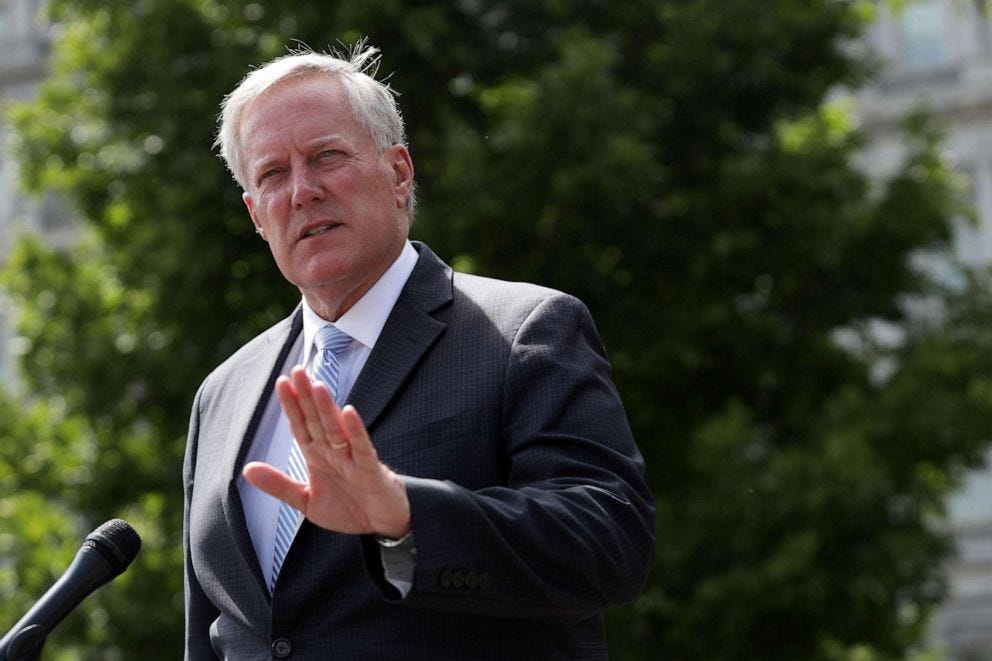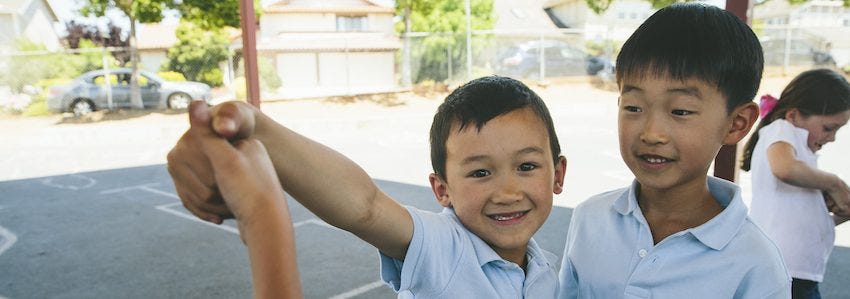This week was big for my family because we accomplished our first week of remote learning and enjoyed a beautiful fall weekend. Fall is my favorite time of year because it reminds me of my years as a second-grade teacher. Fall is for planning the year together and a time of excitement and change. Over the past month my family has made some big changes:
We mostly settled into our COVID learning environment,
We started kindergarten classes, and
We sorted our four kids into new room arrangements to grow into for a few years.
While change can feel transformative, it can also be unnerving. The passing of the Supreme Court Justice Ruth Bader Ginsburg adds a layer of grief around us. But there is a remedy: we must ground ourselves in our convictions. We must ask ourselves why we do the work that we do and what we are willing to sacrifice to enact change.
The truth is that the way we choose to collect and analyze data today will impact the landscape of equitable and just public policy for the next hundred years.
The dual pandemics, our regional wildfires, and our problematic politics have shone light on the need for strong and strategic local government. More importantly, we need that government to be driven by communities organizing and advocating for enduring change. We are relying on local leaders to hit it out of the park this year so we can recover and rebuild our communities.
The truth is that the way we choose to collect and analyze data today will impact the landscape of equitable and just public policy for the next hundred years. For this reason, our call to action is to ground in our convictions, co-construct our work with our communities, and work to document, accurately and fervently, the lived experiences of our families and students today. With this in mind, I am excited and humbled to share this week I will begin serving the Portland Public School community with Dr. Russell Brown, Chief of Systems Performance, leading the research and evaluation team. I am looking forward to learning more about my own community in my new roll and welcome opportunities to hear your stories and experiences to guide the work.
FEDERAL POLICY AND POLITICS
It is imperative that the federal government make state and local governments whole as quickly as possible to mitigate the long-term economic impact of COVID-19. Researchers predict that the financial loss will span throughout the 21st century and grow to nearly $14.1 trillion. House leadership aims to vote on a continuing resolution this week and there appears to be a renewed interest in negotiating a relief package, but much of these developments may be put on the back burner while Congress negotiates the response to the passing of RBG.

Mark Meadows, White House Chief of Staff, addressing press. Photo by Alex Wong/ Getty Images
House leadership aims to vote on a continuing resolution this week and there appears to be a renewed interest in negotiating a relief package, but much of these developments may be put on the back burner while Congress negotiates the response to the passing of RBG.
RACE EQUITY IN EDUCATION
Racial equity and justice are at the forefront of most policy-related conversations today, especially in education. This week, the President denounced Critical Race Theory (CRT) and demarcated lines between those who choose to embrace the principles of 1776 and those who support the principles outlined in the New York Times 1619 project, released in 2019. In reality, the theoretical confrontation playing out between these ideologies about American history are a reality for many Black, Indigenous, and Latinx educators. As school districts face demanding budgeting decisions many will fallback on their longstanding seniority policies, also known as “first-in-first-out” that will have a disproportionate impact on our diverse teacher workforce.
EARLY CHILDHOOD EDUCATION
School districts are challenged to address the intersectionality of remote learning and students with exceptionalities. Students in their early years, those learning English, and students with dyslexia are at risk of going unnoticed or overlooked among the chaos of transitioning to remote or hybrid learning. We know that birth to age 3 is an important developmental age range in which the brain is most sensitive to growth. Some states use outstanding policy implementation to support these critical years. Meanwhile, during remote learning, it is unclear whether schools are collecting the data necessary to explore how the coronavirus is impacting kindergarten enrollment, or the “redshirt gap.” In each of these cases educators and leaders must rely on building clear and consistent communication.
How the pandemic is shifting school comms strategies for English learners
Fearing distance learning, many parents opt for preschool instead of kindergarten
Designing Effective K-3 Literacy Policies and Navigating the Pandemic
Trends in Children’s Academic Skills at School Entry: 2010 to 2017

Meanwhile, during remote learning, it is unclear whether schools are collecting the data necessary to explore how the coronavirus is impacting kindergarten enrollment, or the “redshirt gap.”
SCHOOL REOPENING
Transparency in communication is challenging in the best of circumstances but is severely disrupted during an emergency. Researchers found that half of all states fail to provide clear guidance about what specifically safe school reopening looks like for their communities. Meanwhile, this week the CDC issued revised guidance about how schools should make reopening decisions, including new indicators like the number of new cases per 100K people within the last 14 days. Regardless, there is nothing more important than the health and safety of our students and families. However, the ideas of health and safety are contextual and subjective, therefore it is imperative that we turn to evidence and experts to ground in medicine and science.
Urgent action by states, fed needed to clarify school reopening decisions
Survey: 1 in 3 teachers considering exit, early retirement due to coronavirus
American Academy of Pediatrics Shares Strategies for Safe In-Person Instruction
ASSESSMENT AND DATA COLLECTION
The value and utility of meaningful education data collected today is determined by the extent to which our families and schools engage in authentic, trusting, and transparent relationships prior to data collection. The US Department of Education launched a new database, sharing per pupil spending by state, with transparency in mind. However, public trust and confidence in our schools relies on systemic change within the ways we engage stakeholders. The federal and state investments made in schools across the country in response to COVID-19 will require analysis, evaluation, and reporting someday. Ultimately, this process will challenge educators and families to co-construct instructional and relational supports throughout remote or hybrid learning environments.
Secretary DeVos Launches New Web Tool to Help Parents, Educators Easily Access School Spending Data
You are Losing Your Credibility: Maximizing Appropriate Involvement of Community Members
Check out this PACE publication: Fostering Parent Engagement
Supporting Students While Learning at Home: Individual Student Data and the COVID-19 Crisis

However, public trust and confidence in our schools relies on systemic change within the ways we engage stakeholders.
MODERNIZING POSTSECONDARY SUCCESS
The coronavirus is providing the education community a pause to redefine and reconstruct the narratives and policies surrounding postsecondary trajectories. This week researchers released a policy brief outlining how states across the country are implementing college and career readiness policies through accountability. The brief makes clear that states have room to improve their supports for the economic health and wealth of our young adults. Another team of researchers shared a new perspective on the intersection of workforce readiness and systemic inequity in schools and hiring. These pieces leave us with more questions than answers that require a cross-sector, collaborative discussion and vision for modernizing postsecondary success.
UPCOMING EVENTS
Monday, September 21 (2 PM EST) Aurora Institute on Integrating PBL in Online and Blended Courses
Tuesday, September 22 (12 PM CST) Healthy Schools Campaign on Back to School in the COVID-19 ERA
Tuesday, September 22 (1 PM EST) Johns Hopkins Professor Slavin on Looking Toward the Future: Can we Build a Marshall Plan for Education
Tuesday, September 22 (2 PM EST) The Hunt Institute on Confronting Implicit Discrimination in Schools and Districts
Wednesday, September 23 (10 AM EST) Senate HELP Committee is holding a hearing on COVID-19: An Update on the Federal Response
Wednesday, September 23 (2 PM EST) Aurora Institute, WestEd, and KnowledgeWorks on Formative Evaluation and Continuous Improvements in Transformative Education Efforts
Wednesday, September 23 (3 PM EST) BrainPOP The Art and Science of Back-to-School 2020: What is Essential During a Pandemic and Beyond?
Thursday, September 24 (3 PM EST) The Hunt Institute on Helping Educators Provide High-Quality Remote Instruction
Monday, October 5 (2:00 EST) Bellwether webinar on A Lost Year of Data? What Disruptions From COVID-19 Mean for Education Research
Dr. Christine M. T. Pitts serves as Manager of Research and Evaluation at Portland Public Schools. As an Oregonian, raised by a multicultural family of educators, she brings a decade of progressive strategic leadership experience, a transformative vision, and analytic skill to crafting state education policy. An educator and researcher by training, she has conducted legislation, governance, and policy analyses on a wide array of education issues using social network analysis and mixed methods research. In addition, Dr. Pitts is a facilitative leader who deeply understands and co-constructs local and national partnerships and convening across stakeholder groups. Dr. Pitts currently coordinates between state and national policy leaders to investigate and advocate for policies that prioritize equity in education. Christine lives with her husband and four children in Portland, Oregon. Follow her on Twitter @cmtpitts.




